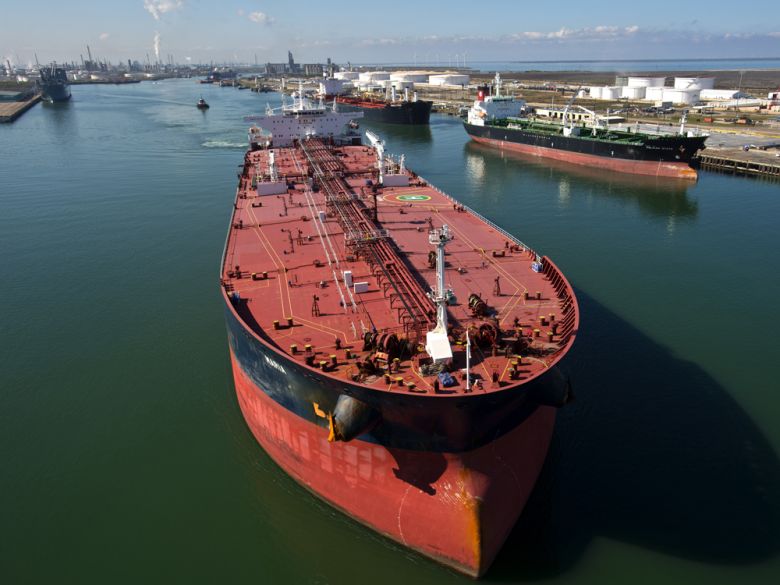The future of Alberta’s oil and gas resources has never looked grimmer. Anti-pipeline activists promoting the ideology of climate change have infiltrated federal and provincial governments, leaving Canada’s fossil-fuel rich Western provinces in seeming isolation. Some First Nation groups and environmentalists went to court Tuesday to shut down the Trans Mountain XL oilsands pipeline to Canada’s West Coast. In Quebec, Bloc Québécois federal leader Yves-François Blanchet and Premier François Legault promise to block any attempt to build new pipeline capacity through their province to Canada’s East Coast.
There is an alternative for the West, for Alberta’s oil and maybe for the future of Confederation. To put it bluntly, the West doesn’t need Quebec. To get oil to the East and other parts of the world, where fossil fuel demand is set to grow no matter how hard the United Nations tries to shut it down, veteran Canadian energy transport expert Michael H. Bell has a plan.
In articles on this page as recently as last year, Bell outlined a proposal that would liberate Alberta and Saskatchewan from the constitutional clutches of Quebec and British Columbia. “Canada could economically and safely ship oil from Alberta by pipeline to Hudson Bay, where it would be picked up by tanker for transport over the top of Quebec and Newfoundland and delivered to the East Coast —and ultimately the rest of the world.”
- Here's a pipeline route to tidewater Canada has never considered — but needs to
- Why Canada should consider shipping oil by Hudson Bay by tanker rather than overland pipeline
- William Watson: Wexit, Quebec and the bitumen that binds us
Bell maintains that such an operation, as shown on the accompanying map, would be “environmentally sound and cost-effective.” Bell himself is a Canadian Arctic shipping pioneer. He is a former senior vice-president of Fednav, a Canadian shipping consortium where he was in charge of Fednav’s Arctic operations, and was involved with Petro-Canada in the Arctic Pilot Project to determine the safety and economics of Polar Class ice-breaking vessels operating in the Arctic year-round.
 Readers can pick up more detail on Bell’s Hudson Bay tanker plans at the FP Comment web page, including a commentary from 2013 describing aspects of the plan that at first appear challenging to outsiders, including concerns about running tankers through Arctic ice.
Readers can pick up more detail on Bell’s Hudson Bay tanker plans at the FP Comment web page, including a commentary from 2013 describing aspects of the plan that at first appear challenging to outsiders, including concerns about running tankers through Arctic ice.
STORY CONTINUES BELOW
Transporting oil by tankers is less expensive than pipelines. Oil could move year-round to Atlantic Canada, Quebec and world markets through a pipeline-to-tanker operation that’s loaded from a facility on the West Coast of Hudson Bay. Properly built tankers, which already operate in ice conditions around the world, can readily handle the conditions year-round, and safely.
Bell points out that over the past decade ocean tankers have carried an average of 12 million barrels of oil per day “and averaged 99.99 per cent of that without spillage.” Modern double-hulled tankers, including “Polar Class 4” ships, are more expensive to build but they offer a lower freight cost than pipelines.
Whether the Hudson Bay route is viable economically or environmentally has not been determined. Bell does not underplay the challenges. As he wrote in 2018, a multitude of challenges and associated issues need to be resolved, including whether an alternative Churchill deep-water loading platform will have to be devised. “And the pipeline route from Alberta to Hudson Bay may not be as straightforward as I imply.”
One of Bell’s associates in promoting the Hudson Bay plan is Dan Motyka, a former vice-president of frontier development for Gulf Oil in Canada who worked on Beaufort Sea and other developments. In an interview Tuesday, Motyka said “there has to be some way to move oil out of Alberta and Saskatchewan to international markets. We’ve been preoccupied with getting to coastlines in the West and East, and people have been ignoring Hudson Bay.”
Bell concedes he and has colleagues have only “scratched the surface” of the transportation and environmental issues. “A lot of work (including an analysis of the potential effect on wildlife) has to be done to prove or disprove this option. But, to my mind, an even more exciting aspect of the concept is the opportunity to find new markets for Canadian oil.”
Now more than ever is the time to explore the Hudson Bay option and, just maybe, liberate Alberta and the West from the clutches of Confederation.
Financial Post



























